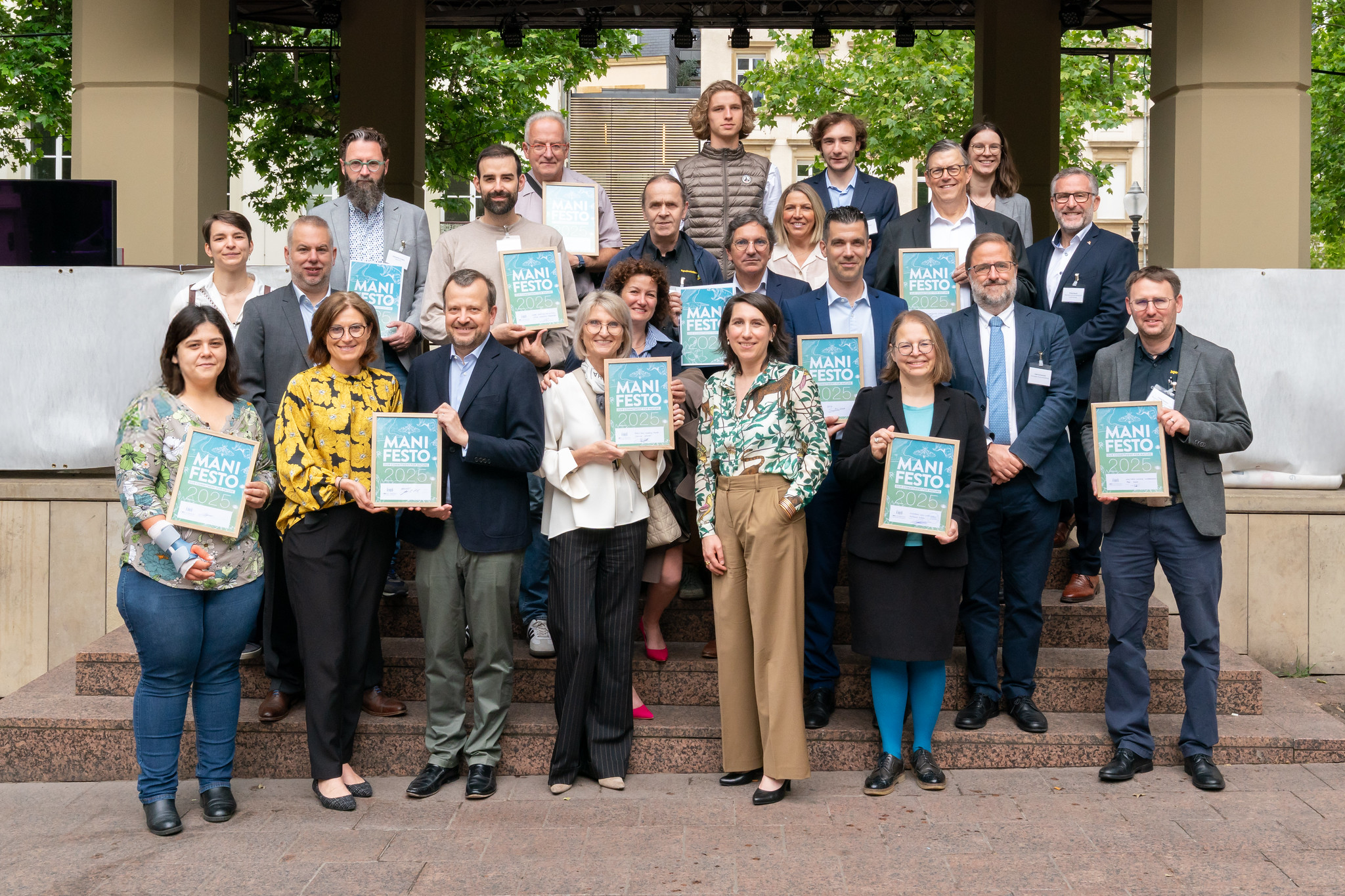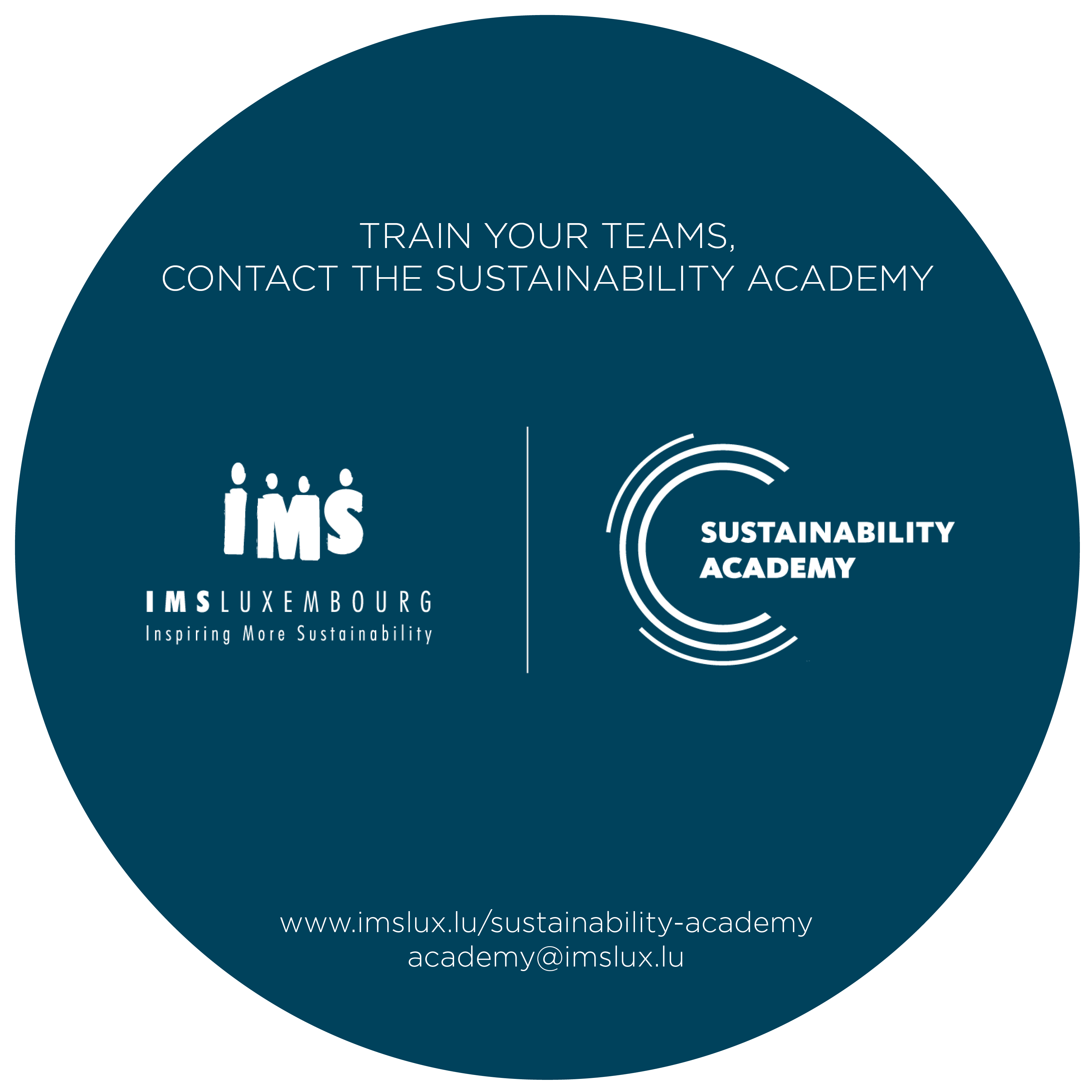The UN Conference on Biodiversity (COP16) took place in Cali, Colombia from 21th October to the 1st November 2024. During COP15 in 2022, countries committed to preserving 30% of their lands and seas by 2030. To achieve this, each country is required to publish a national biodiversity strategy. During COP16, 61% of member states submitted national objectives for nature.
For Luxembourg, this is embodied in the National Plan for Nature Protection (PNPN3). A key figure stands out : Companies in the territory representing a cumulative 10% of the payroll must commit to promoting biodiversity by 2026.
The World Economic Forum's Global Risks report, published in 2024, shows that over 55% of the world's GDP is moderately or even highly dependent on nature and the services provided by ecosystems. Understanding the impacts and dependencies of our activities on nature is therefore essential to ensuring business resilience.
What actions for 2025?
In an ongoing collaboration with the Ministry of the Environment, Climate, and Biodiversity, we have initiated the “Nature Pact for Businesses,” a continuation of the “Biodiversity Action Lab.” Its objectives are:
- To encourage and support businesses to initiate a strategy for nature in order to reduce the impact of their activities on biodiversity and make a positive contribution to the restoration of ecosystems.
- Organise workshops based on the following structure: assessment, commitment, transformation and disclosure in favor of nature (ACT-D methodology).
- Working with businesses to validate an action list for biodiversity in business.
- To create the foundations for a future platform that would resource the information needed to transform businesses in favor of nature.
This project came to an end in June 2025. If your company would like to find out more about or strengthen its biodiversity actions, please contact our Biodiversity Project Manager
During this project, 11 companies made a commitment alongside us to take concrete action. The ‘Our commitment for nature 2025’ manifesto was signed on 5 June.


Previous Actions
Since 2021, IMS has been raising awareness among its members through biodiversity workshops, nature reconnection activities, a premiere of Marie-Monique Robin’s film “The Factory of Pandemics,” and visits to inspiring companies.
In 2023, in collaboration with the Ministry of the Environment, Climate, and Biodiversity, IMS launched the “Biodiversity Action Lab,” a closed working group comprising 10 companies of various sectors and sizes. Its goals include: Meeting the objectives of the PNPN3, Inspiring companies in their nature strategies tailored to their sectors, Developing a list of indicators for better management of green spaces and buildings to support biodiversity, Facilitating sharing and collaboration among diverse stakeholders.
• A member of the World Business Council for Sustainable Development (WBCSD), a coalition of international companies committed to sustainable development.
• A contact point for the Capitals Coalition, which recognises the impacts and dependencies of not only financial capital but also natural, human, and social capital.
• A partner of Business for Nature, an international organisation created in 2021, which recently launched the “It’s Now for Nature” campaign encouraging companies to publish their nature strategies for COP16 and future COPs: It’s Now for Nature.

![]()
![]()
![]()
Sustainability Mag
Discover the articles of the category "Nature".




Why do compagnies need a nature strategy ?
Inspiring Initiatives across sectors
As some Luxembourg organisations turns into nature
Replays
The subject was also the main theme of the annual IMS Forum with the intervention of many national (MECDD, MHNH, LIST, Natur&Emwelt, ProSud, City of Luxembourg...) and international (IPBES, IPCC, WWF, WBCSD, Marie-Monique Robin, Alexis Rosenfeld...) experts to raise the awareness of the general public.

A nature strategy includes:
- Double materiality analysis (impacts, dependencies, risks and opportunities along the value chain)
- Commitments (SMART objectives)
- Concrete actions to achieve these objectives
- Validation and involvement of executive committee
To discover exemple of nature strategies: https://nowfornature.org/strategies/

To reduce and avoid impacts throughout a company's value chain, it is necessary to start by identifying impacts and dependencies on nature. Thereafter, it is important to commit by formulating precise, appropriate, measurable and time-defined objectives.
The measures to be implemented can extend across the site, including outdoor areas (green spaces dedicated to hosting biodiversity) and the building (e.g. wildlife-friendly features, reduction of light pollution). Other impact-reduction measures are articulated along the value chain (dialogue with suppliers, raising customer awareness, and involvement of internal teams).

Many of an organisation's impacts result from its activities along the entire activity chain. It plays a role in relation to all its stakeholders and can, therefore, commit to involving its suppliers, customers, and others in a process of impact reduction or even nature restoration.

To act, an organisation must initially identify and assess the impacts of its activities on biodiversity, their dependence on nature, and the risks and opportunities of taking action to preserve ecosystems.
-





